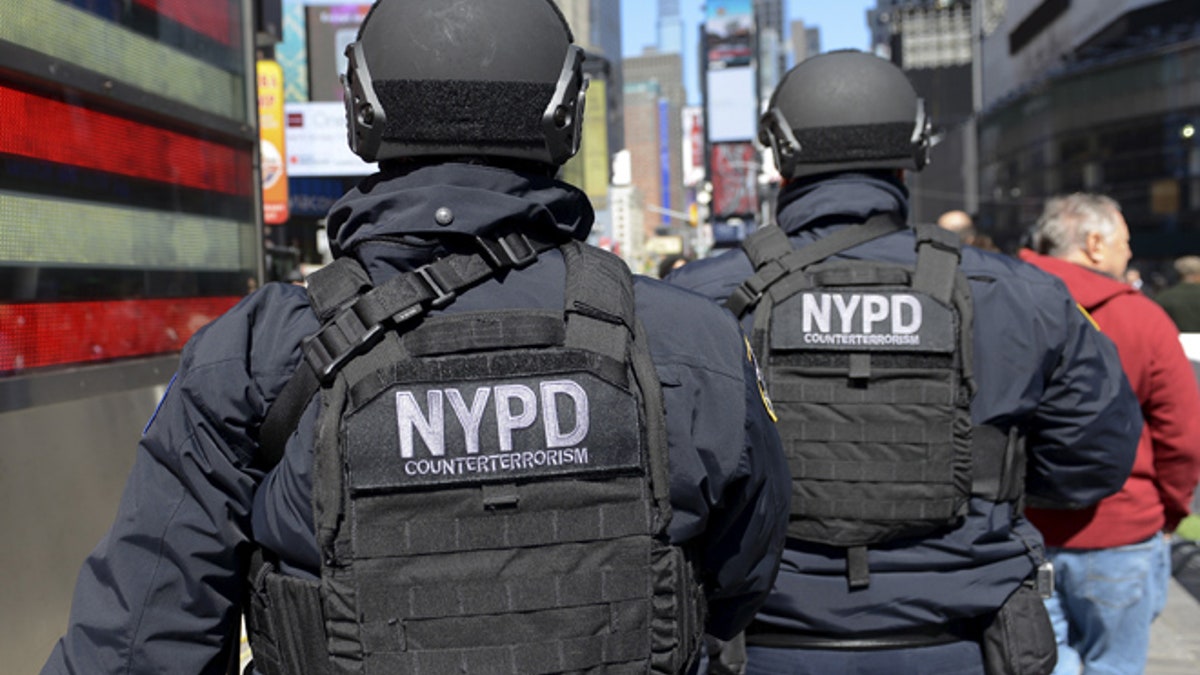
MARCH 22: Members of the NYPD Joint Terrorism Task Force patrol in Times Square. (Reuters)
Thousands of New Yorkers are being discreetly informed by NYPD detectives that their names have appeared on a list of “potential targets,” possibly compiled by terrorists, authorities confirmed to FoxNews.com.
NYPD officials confirmed the existence of the list of more than 3,000 names, but did not elaborate on how it was formulated or the process of contacting subjects. A Brooklyn woman who told FoxNews.com she was approached by two plainclothes detectives Wednesday and said they told her that her name was on the list, referred to a notecard and advised her to watch for fraudulent charges on her credit cards and other irregular transactions, she said.
Sources told FoxNews.com the NYPD was working with the FBI after the list was discovered, with the police doing the legwork.
"While our standard practice is to decline comment on specific operational and investigative matters, the FBI routinely notifies individuals and organizations of information collected during the course of an investigation that may be perceived as potentially threatening in nature,” an FBI spokesperson said. “Potential threats may relate to individuals, institutions, or organizations, and are shared in order to sensitize potential victims to the observed threat, and to assist them in taking proper steps to ensure their safety.”
The woman who spoke to FoxNews.com is not a government worker or member of the military, and said she doesn’t know why her name would surface on a list. Detectives offered few details, but said her name could have been added to the list after coming up in an Internet search.
“They’re (ISIS) hoping that a person with a mental health issue thinks they’re a soldier.”
In October 2014, Fox News reported that U.S. military personnel were sent an Army intelligence bulletin warning them to be vigilant after Islamic State militants called on supporters to scour social media for addresses of their family and to “show up and slaughter them.”
John Cohen, the former counterterrorism coordinator at the Department of Homeland Security and currently a professor at Rutgers University in New Jersey, said the list sounds like a clumsy attempt by ISIS to create the impression it has global reach through the web. He said the names may have been randomly selected from a social media platform like Facebook.
“They hope that some person may be sitting home and get inspired,” he said. “They’re hoping that a person with a mental health issue thinks they’re a soldier.”
Once such a list circulates, police are obligated to inform people whose names may appear, he said. At the very least, a terrorist group accomplishes one goal: Getting law enforcement to tie up valuable resources.
“You have to stay vigilant,” Cohen said.





















